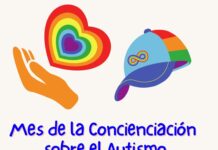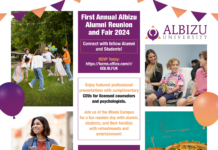The unprecedented disruption of normal life we have experienced so far in 2020 has added a new dimension of stressors to those which were present in our lives before the pandemic and are now exacerbated by current circumstances.
Stress is a normal reaction to ambiguous and challenging situations, and while we often feel that our experience of stress is unique and individually ours, we are now living in a rare time when a global stressor has impacted us all.
Each of the restrictions which has been placed on our daily lives is a stressor, even if it has been implemented with everyone’s safety in mind. Giving up the routines and activities we enjoy and living under a cloud of fear about becoming seriously ill is exasperating the stressors we lived with pre-COVID-19.
COVID-19 restrictions on family contact in hospitals and residential facilities are another source of anxiety. Home-based care has been no less disrupted by the virus. And while there is no evidence that dementia directly increases the risk of contracting COVID-19, factors such as old age, forgetfulness and co-morbid conditions can impact an individual’s risk level.
Consuming the latest news about the virus throughout the day, with ominous updates about transmission and prevalence, is likely to make most of us feel uneasy at best and often overwhelmed. Most of us are well-advised to limit the amount of time we spend tracking the news.
For people with complex challenges, such as caring for a loved one with dementia, the current stressors can seem insurmountable. Adverse effects of elevated stress, sleep disturbances, decreased access to resources and reduced activity can pose serious health risks to loved ones and caregivers. It is impossible to overstate the importance of self-care.
Self-care includes following all CDC health and safety protocols for preventing transmission of the virus, taking time to rest and relax, getting enough sleep, eating healthy meals, exercising, limiting the time you spend consuming the news and doing everything you can to stay healthy.
When the world feels upside-down, we’re likely to be challenged everywhere we turn: at work, home, school and everywhere else. While some people can adjust to working and learning from home, having kids out of school, quarantining, wearing masks, social distancing, unemployment, social upheaval, isolation and the entire onslaught of stressors, many others are struggling to cope.
Help is available from a variety of sources. For caregivers and families of people with dementia, the Alzheimer’s Association website is an excellent place to find tips, recommendations, and checklists of best practices for helping loved ones and curtailing COVID-19 transmission.
Whether you are caring only for yourself or for yourself and another person, remember that self-care is paramount, help is available, and you are not alone.
Dr. Isaac P. Tourgeman is a full-time faculty member at Albizu University in Doral, Florida. He is co-coordinator of the neuropsychology track and Faculty Advisor for the Neuropsychology Club. He is also an adjunct professor for the Master’s in Speech Pathology Program. Dr. Tourgeman is a psychologist on staff in the Neuropsychology department at Design Neuroscience Center in Doral, Florida.
Jessica Frias is a Psy.D student at Albizu University’s Clinical Psychology program in Miami and a neuropsychology practicum student at Design Neuroscience Center in Doral, Florida.





